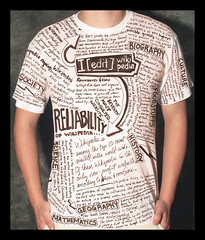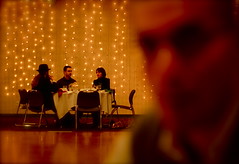- Via IDEALS (Illinois Digital Environment for Access to Learning and Scholarship): https://www.ideals.illinois.edu/handle/2142/79049
- Via Taylor and Francis: http://www.tandfonline.com/doi/full/10.1080/1941126X.2015.1059643#
Good article suggesting some tips on running more successful, or rather, more patron-involved trials of electronic resources. The typical trial process given in the article is basically what I do with a few "flourishes" added, so I learned a few things that I may try for next time and add to my list of steps:
- Listen to the needs of the potentially affected patrons. Although this seems obvious, I know we all find it hard to seek out the needs instead of just assuming we know them. And sometimes the needs mentioned are not actual needs. But understanding them better should be part of the process.
- The trial acting as a case study was done in March. I've tended to have them run whenever the trial requestor suggests or simply as soon as possible. But there may be some value in running them during either March or November since, at my current institution at least, these are the peak periods of use for electronic resources. All other things being held equal, this should ensure the most use and therefore the most supported feedback possible.
- In the case study, the health librarian running the trial made personal contact with the relevant patrons, including the faculty department head. I've always thought this should happen more but as eResources Librarian, it's not part of my role. But I could encourage this and try to make it easier for those subject liaisons who would be doing this.
- The article makes the true point that someone who is "one of us" is more likely to be listened to than otherwise. Again, this is not my current role, and I'm not sure that it's as simple as that, but some aspects of becoming closer to the relevant patron group might be helpful in this and other situations.
- The article finally mentions that training, support material, and updating communications followed immediately on the heels of the trial end. Although this kind of this on my list of things to do, it might be helpful to increase the priority of the timing.
Good article, JJ. Thanks for the tips! Anyone else have anything interesting to suggest for running trials?






